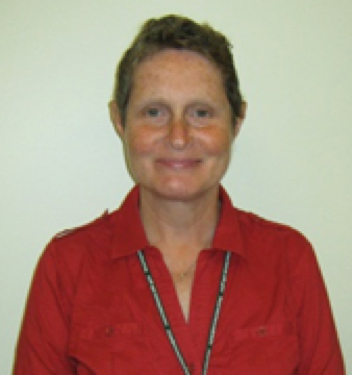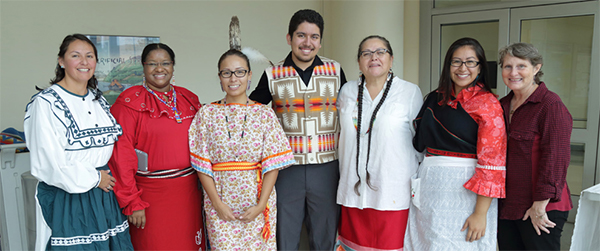
Meet Dr. Rita Devine, the Assistant Director, for Science Administration at National Institute of Neurological Disorders and Stroke (NINDS) at the National Institutes of Health (NIH). The Office of Equity, Diversity, and Inclusion (EDI) recognizes Dr. Devine because of her commitment to diversity and inclusion at the NIH. Dr. Devine’s support for NIH’s diversity and inclusion initiatives has resulted in numerous internships and life-changing opportunities for many underrepresented groups. She has overseen the participation of Native Americans (NA) in the NIH summer internship program for the past eleven years in addition to many other contributions she makes each day to the NIH. Dr. Devine visits tribal elders at their reservations several times each year because she values building trust with parents, community groups and leaders.
She earned her bachelor’s degree in animal science from the University of Delaware. After graduation, she became a technician in a tropical medicine lab. Later, she went to graduate school at Georgetown University, earning her Ph.D. in developmental biology before completing two postdoctoral fellowships at the NIH.
Ashley Wells: How can you help improve the composition of the STEM education pipeline for Native American students?
Dr. Rita Devine: By continuing to support them and encourage the Native students to continue in school, graduate college and attend graduate or medical school. We can expand our reach to more and more tribes to encourage them to send their students to us for our training programs, and we can support them culturally as well. And we must continue to address and break down the social, cultural and educational barriers that prevent Native students from succeeding.
Ashley Wells: What is your most important accomplishment to date?
Dr. Rita Devine: Being able to develop a program that supports Native students in all the ways necessary to ensure that they have opportunities to succeed in Science, Technology, Engineering, and Math (STEM) careers.
Ashley Wells: How did you choose your career?
Dr. Rita Devine: I think my career chose me. So, I have had to do a lot of life-learning on the way. However, the longer I'm in this position the more important "social justice" becomes.
Ashley Wells: What types of community programs do you feel need to be more visible in Indian countries?
Dr. Rita Devine: Educational opportunities need to be more readily available to students in high schools so that they are made aware of the possibilities of obtaining a higher education and overcoming the obstacles they face.
Ashley Wells: What are ways to provide better STEM education for Native American students?
Dr. Rita Devine: Provide resources to schools primarily serving NA students. Make sure students and the educators that advise them are made aware of the resources and opportunities available to them. Engage more folks in power/leadership roles, and also those in the trenches, so that they are intimately introduced to the problems, the goals and the solutions that NA students face. Educate the educators. Provide a program that excites the educators to become vested in the NA students they teach. And make sure the educators have the resources to implement new programs/ideas and sustain them.
Ashley Wells: How can Tribal colleges build stronger partnerships with institutions like NIH?
Dr. Rita Devine: I think the question is what must NIH do to engage the Tribal Colleges and Universities (TCU)? Partnering grants like Better Utilizing Investments to Leverage Development (BUILD) grants are a good start, but there needs to be a further commitment/pressure and money in intramural to collaborate. For instance, although in neuroscience we may not feel we have much we can do to collaborate discipline-wise with a TCU, we can, however, share techniques and equipment, train professors here at the NIH in Bethesda so that they can go back to their schools and be able to train their students using cutting edge technology. We could have students do a semester of schooling here in Bethesda, learning new techniques and taking Foundation for Advanced Education in the Sciences (FAES) classes. We could send our science core facility chiefs out to the TCUs to train professors on use of new equipment and techniques. Imaging techniques, an area where the NIH excels would be one obvious choice. And if a TCU doesn’t currently have higher dollar equipment, the professors and students could come to the NIH for a month or so to use our equipment.
Ashley Wells: What does success mean to you?
Dr. Rita Devine: Success is knowing that you cannot fix everything but knowing that you have done all within your power to improve a situation.

Do you have a story idea for us? Do you want to submit a guest blog? If it's about equity, diversity, or inclusion, please submit to edi.stories@nih.gov.
For news, updates, and videos, follow or subscribe to EDI on: Twitter, Instagram, Blog, YouTube.







